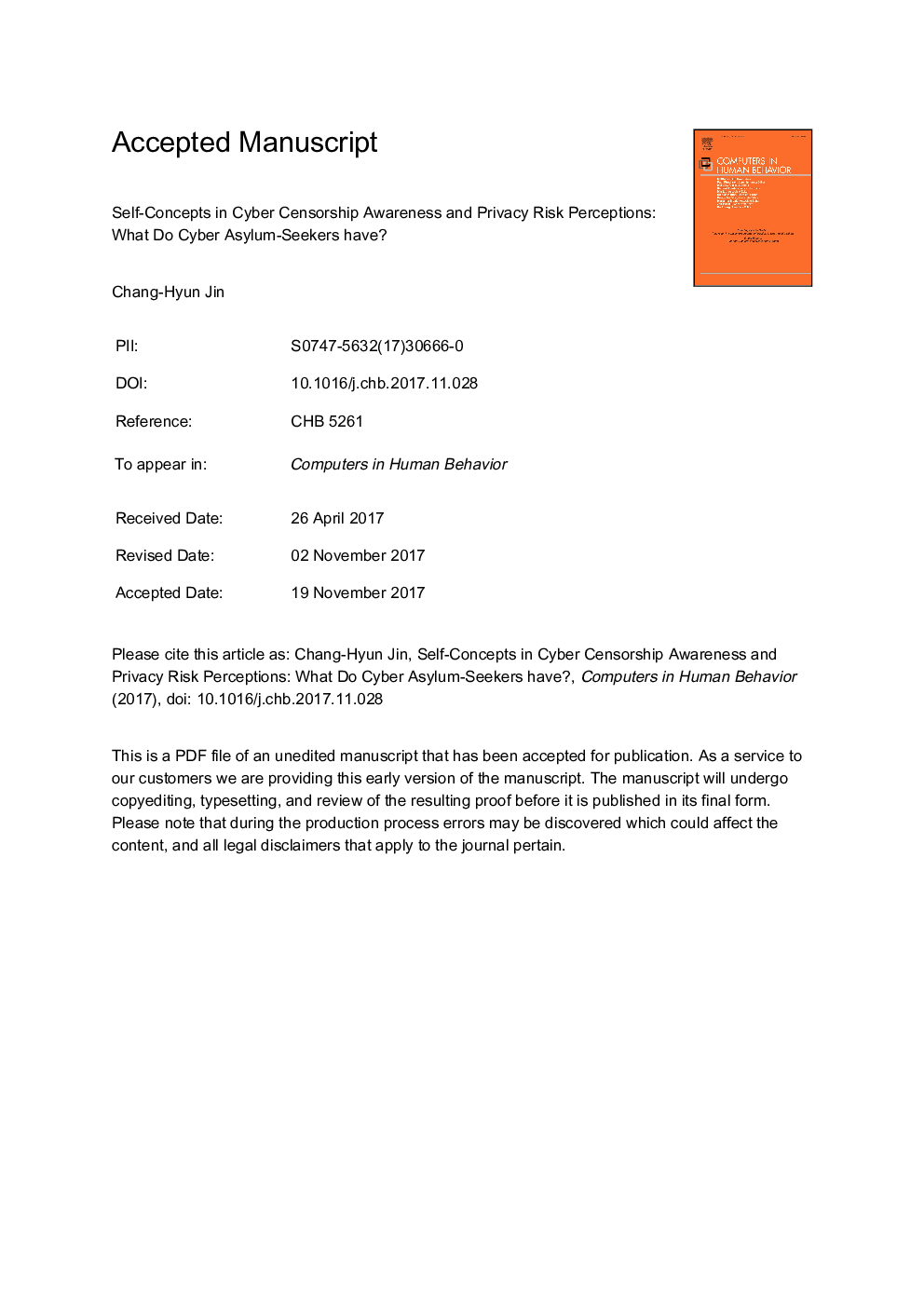| Article ID | Journal | Published Year | Pages | File Type |
|---|---|---|---|---|
| 6836286 | Computers in Human Behavior | 2018 | 44 Pages |
Abstract
The aim of this research was to investigate the role cyber asylum-seekers' self-concepts play in cyber censorship awareness as well as the effects of privacy risk perceptions and privacy concerns on the behavioral intention to seek cyber asylum. The study examined how the self-concepts of cyberspace users affected their awareness of cyber censorship (where a self-concept comprises six elements-self-disclosure, self-efficacy, self-assertion, social presence, self-esteem, and self-identity). Based on consumer panel data from a survey of cyberspace surfers (n = 1500), the results revealed that online media users' self-concepts played an important role in making them aware of cyber censorship and explained how cyber censorship awareness affected privacy risk perceptions and privacy concerns. Theoretical and practical implications of the findings and limitations of the study as well as directions for future research are discussed.
Related Topics
Physical Sciences and Engineering
Computer Science
Computer Science Applications
Authors
Chang-Hyun Jin,
